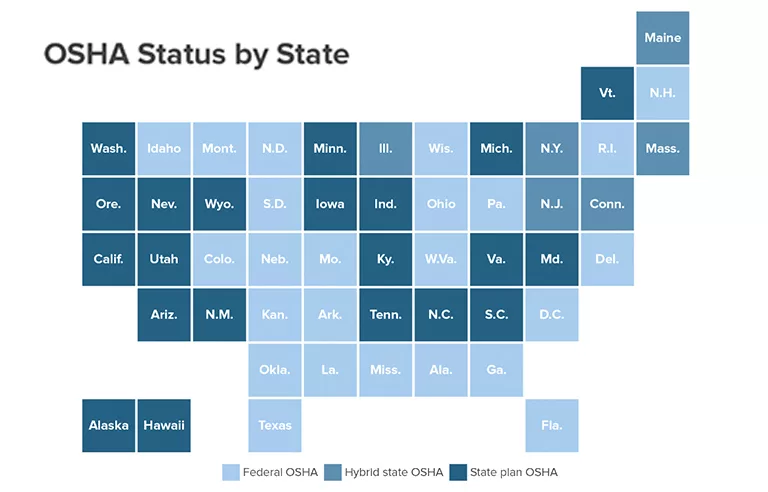
Photo: Economic Policy Institute
Washington — State policymakers can maintain or bolster worker rights and safety and health protections – which are “under acute threat” – via a three-step plan, the Economic Policy Institute says in a new report.
EPI, which describes itself as a “nonprofit, nonpartisan think tank,” points to efforts by the Trump administration to restrict the General Duty Clause and block or delay standards on hazards such as heat exposure or silica dust, among other actions.
Although states under federal OSHA are preempted from enacting standards already addressed by the agency, they can enact policies that cover areas not addressed by federal law, EPI notes. The 21 states that operate as State Plan programs under federal OSHA and cover both private-sector and state/local government workers, however, have authority to enact standards exceeding the federal floor, including those related to enforcement programs and civil monetary penalties.
The first step, EPI says, is updating state laws and standards to lock in current federal protections. Illinois Gov. J.B. Pritzker (D) signed such a law in August.
The think tank encourages states under federal OSHA to ensure coverage for all public employees and pass worker health and safety trigger laws to safeguard against federal standards being eliminated. Meanwhile, State Plan programs should ensure full adoption of all current federal standards.
The second step involves closing critical health and safety protection gaps, which can include all states adopting standards on hazards not covered by federal OSHA, such as heat exposure, wildfire smoke, ergonomics, infectious disease and workplace violence. State Plan programs, meanwhile, can focus on enhancing existing standards.
The third step involves increasing enforcement effectiveness, encouraging compliance and expanding community awareness.
The institute recommends that State Plan programs implement targeted, more effective enforcement and penalty strategies, monitor and expose routine violators, and provide or require workers’ rights education.
McCraren Compliance offers many opportunities in safety training to help circumvent accidents. Please take a moment to visit our calendar of classes to see what we can do to help your safety measures from training to consulting.
Original article published by Safety+Health an NSC publication